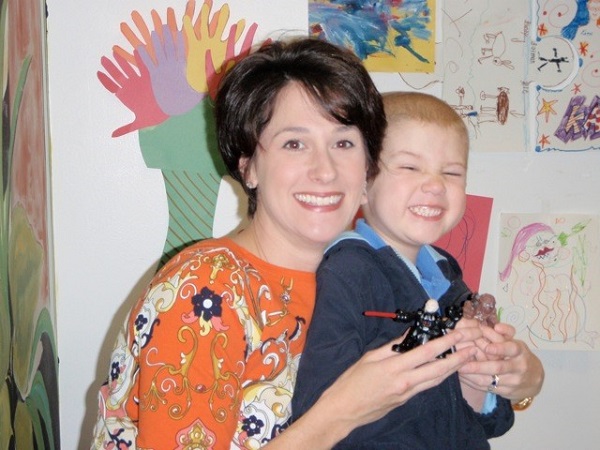Cancer.
It’s a word that changes everything. You can’t breathe. You simply can’t believe it. You want to cry and scream and pound your fists against something, anything. Because your child isn’t supposed to get sick, not with this.
Not cancer.
“When you first hear it, there is a huge element of disbelief,” said Kaci Johnson, whose son Duncan III was diagnosed with Burkett’s lymphoma when he was just three years old. “It took a while to utter that ‘c’ word. It’s a very hard word to make come out of your mouth. I very much remember the first time I said it, and it was a whisper.”
When your child is diagnosed with cancer, your family’s life has a new normal. And grief is an expected—and entirely normal—part of that, even though there hasn’t been a loss. “Your life as it was and for your child and your whole family is forever changed. So there is a grief to the newness, and it is real,” said Johnson.
So how do you get through it—be there for your child and the rest of your family—but stay healthy and strong yourself? For Johnson, this is what helped her and her family:
1) Write everything down.
After your child’s diagnosis, treatments start almost immediately, says Johnson. “So many different people come in and tell you things using big words and medical terms,” she said. “I wrote them all down, so I could listen and then look things up later. It made my follow-up questions more direct.”
2) Use the internet wisely.
“The internet can be horrifying, so don’t believe everything you read,” said Johnson. “We weren’t too far into it when my husband said, ‘You’ve got to get off the internet.’” However, some reputable sites you may want to reference include the American Cancer Society, national sites associated with your child’s particular diagnosis (such as the Leukemia and Lymphoma Society), or the American Brain Tumor Association) or the National Cancer Institute.
3) Ask a nurse.
“Oh my word, nurses are a huge wealth of information,” said Johnson. “I would look stuff up, but often I would ask those nurses what does this mean, how do you pronounce this. They were so involved. They really do become your second family and they love those babies.”
4) Lean on your support network.
Your friends and family want to help but may not know what to do. So tell them. “You’ve got to get your support system around you to withstand it physically, spiritually, emotionally and psychologically,” said Johnson. “You can easily find yourself as a caretaker not eating right or not exercising. We as parents tend to put ourselves last, but in that scenario as the caretaker for your child, it’s one of the worst things you could do.” So when family and friends ask how they can help, let them know if they could take your other children for an outing, plan and prepare meals, even clean your house. Having these tasks off your plate can give you some relief and help you focus on your child and yourself.
5) Seek out a support group.
While a formal support group for your child’s cancer may not exist in your area, you can seek out other parents going through your same situation. Look for online groups or Facebook pages, or bring together an informal group of parents whose children are receiving treatment at your hospital. Or, become friends with other parents on an individual basis. “It really is invaluable,” said Johnson.
6) Start a blog to update loved ones on your child’s progress.
While the outpouring of support is wonderful, it can also be exhausting to update everyone again and again on how your child is doing. So start a blog. Sites such as www.caringbridge.org or www.carepages.com make it easy, and you can share the link with your family and friends. “It was very therapeutic for me and allows you to share the process with everyone rather than feeling like a broken record,” said Johnson.
7) Appreciate the sweetness with the bitter.
One of the changes that Johnson was most dreading was Duncan III losing his hair. But yet, the soft blonde fuzz that began to grow back became an unexpected sweetness. “Not many mamas get that peach fuzz twice,” said Johnson. The time spent together with your child in the hospital also becomes precious. “Lots of moms have to leave their job in order to get their family through treatment, but the relationship that you get with your child through that is pretty special,” she said.
8) Hold on to your faith.
For Johnson and her family, they could not have gotten through the experience of Duncan III’s diagnosis and treatment without their faith. “It was one of those times in life where our own relationship with Christ was enriched and our family unit was strengthened like it never has been—and I pray never is again,” said Johnson. “Anytime we go through life’s trials, they get us to where the Lord wants us to be ultimately.”




